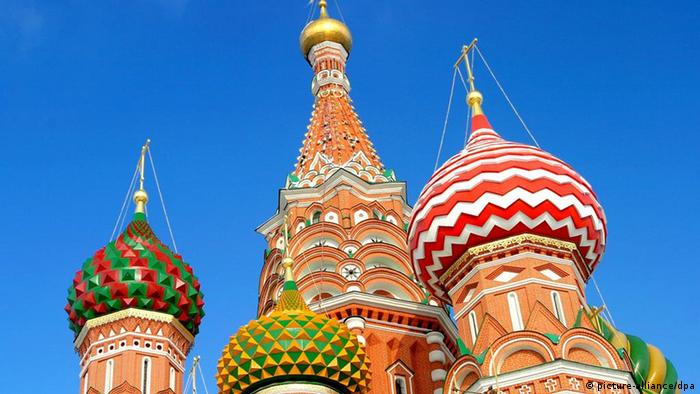Russians have a more positive view of the EU and its primary goals than six months ago. A DW Trend report shows citizens of the Russian Federation looking to the West.
One topic that will be discussed at the upcoming EU-Russia summit is the abolishment of mutual visa requirements. Doing so would primarily benefit citizens of the Russian Federation, 54 percent of whom reacted positively to the prospect. Nearly every second Russian (46 percent) would travel to the EU more often if the trip were visa-free. Among 18 to 29-year-olds that number jumps to 64 percent, according to the December DW study conducted by the Ukrainian market and social research organization IFAK, which interviewed 1,000 individuals between the ages of 18 and 65 in Russia.

Of those questioned, 41 percent supported the idea of Russian membership in the EU. That represents a small increase from June, when 38 percent of Russians responded positively to the idea. Also noteworthy was the speed at which Russians hope to join the 27-nation bloc. Every third Russian (32 percent) hopes for Russia's entry in the EU within the next five years, an 8 percent increase over June, 2012. The 8 percent jump was consistent among all age groups.

Some 53 percent of Russians defined a primary purpose of the EU to be "economic growth"- up from 37 percent six months ago. The numbers show that Russian citizens once again have trust in the economic competencies of the European Union.
At the same time, Russians also view the EU has far less territorially expansive than they did a half year ago. Only 26 percent believe that territorial expansion is a central goal of the EU, a large drop from the 40 percent who believed the same six months ago; it's also the lowest figure ever recorded by DW Trends in Russia.
Beyond the scope of the economy, however, the EU's primary goals were less clear. A continent-wide security system is viewed by 16 percent of Russians as a central EU goal, while 10 percent see a "common European culture and identity" as a main goal of the European Union.

Perceptions of Russian-EU relations have improved in the last few months. After falling to a low point in June, 57 percent now see that relationship as "friendly" or as a "partnership." That's 15 percent more than six months ago. Only 13 percent rated the relationship as "negative."

In contrast to the relationship to the EU, the relationship between Russia and Germany has soured somewhat over that same period. The Kremlin's negative reaction to German critiques of freedom of expression and human rights in Russia appears to have left a mark.
While the proportion of respondents who view the bilateral relationship as "friendly" or part of a "partnership" remains nearly unchanged at 69 percent, the proportion of those who regard the two as "enemies," or their relationship "strained," jumped from 2 percent to 18 percent.

As for how Russians believe their country is viewed by the EU, perceptions are mixed. Some 13 percent of Russians believe Europeans view Russia as an "unpredictable world power with imperial ambitions" - an all-time low. On the other hand, nearly half (46 percent) also worry that Europeans regard Russia is little more than a source of raw materials and cheap workers. Just 30 percent felt the same way one year ago. dw de

No comments:
Post a Comment